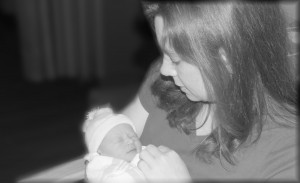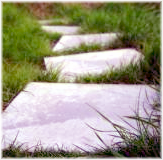This week, Ryan and I attended an awards gala for four Americans who have “fought for freedom with words or ideas.”
Mona Kashani Heern was born in Iran. After the 1979 revolution, she and her sister were expelled from school because of their Bahá’í beliefs. Their father was later jailed for the same reason. After months of waiting in the snow for hours to spend ten minutes with him once a month, they found out he’d been executed. Eventually, her mother smuggled their family into Pakistan, where they lived in jail until they gained refugee status. They later emigrated to Germany, where Mona and her sister had to learn German, English and French in order to graduate high school. Finally, they moved to the US.
Despite the persecution and hardship she’d endured, a prevailing theme in Mrs. Heern’s acceptance speech was the love and kindness that she’d experienced even in the worst, most oppressive circumstances. As a junior high English teacher, she has a passion for sharing her story with her students so that we Americans understand the privileges of freedom that we enjoy (and take for granted).
Sgt. Merlin German, another recipient, served our country in Iraq, participating in over 150 successful missions. When an IED exploded and knocked him from his Humvee turret, he was burned over 97% of his body and given no chance of survival. He defied doctors and not only survived, but relearned to breathe on his own, talk and even walk.
Concerned about burn victims who couldn’t afford the costly treatments, Sgt. German started Merlin’s Miracles. The foundation has helped thousands of burn victims pay for surgeries, compression garments and hospital stays. During a routine surgery last spring, Sgt. German passed away. His legacy lives on through the hundreds of doctors and patients he personally touched and his charitable foundation.

President Boyd K. Packer was the final honoree. He longed to become a pilot like his older brother. He promised God that he would devote his life to His service if he could live that dream. President Packer spent forty months in the Air Force during World War II.
Less than two decades after the end of the war, the Lord called President Packer’s promise due. Packer was called to be an assistant to the Quorum of the Twelve Apostles, then to a member of the Quorum. Since then, he has devoted nearly forty years of his life in the full-time employment as an Apostle in the Church of Jesus Christ of Latter-day Saints. His ministry has included service all over the world. He is now the President of the Quorum of the Twelve Apostles, the second most senior apostle.
The first award recipient, Neil Holbrook, was one of the original eight Navy “Frogmen,” the predecessor of the SEALs. In his acceptance speech, he told of a friend who was standing next to him on deck when his friend was shot. They both fell to the deck and his friend struggled to say something, but died before he could speak. Holbrook has spent six decades wondering what his friend would have said.
I’m passing the torch to the future generations. Please take care of that Constitution that I can’t enjoy. … I don’t have the liberty to go home.
When we thanked him for his service afterward, Mr. Holbrook said he would do it again tomorrow for people like us.
To honor the sacrifice of so many people this independence day, we have to remember what they were fighting for. We have to remember that the freedoms we enjoy in this country are privileges that not everyone has. We cannot forget those founding freedoms, and sometimes we have to fight with words or with weapons to keep them, at home and abroad.
Please remember this today as you celebrate Independence Day—and tomorrow, and afterward.
Newspaper coverage of the award ceremony with brief bios
Photo by Benjamin Earwicker
 As I pondered a title for this post, I thought I should come up with a definition of nobility—and the first thing that popped into my head was that nobility is the opposite of
As I pondered a title for this post, I thought I should come up with a definition of nobility—and the first thing that popped into my head was that nobility is the opposite of 
 But every once in a while, at least, we need to remember that motherhood is more than chores.
But every once in a while, at least, we need to remember that motherhood is more than chores. 
